Tokumaro Dan
Nacimiento : 1902-12-20, Kobe, Hyōgo Prefecture, Japan
Muerte : 1987-01-18

The Domain: Kanda Festival Showdown
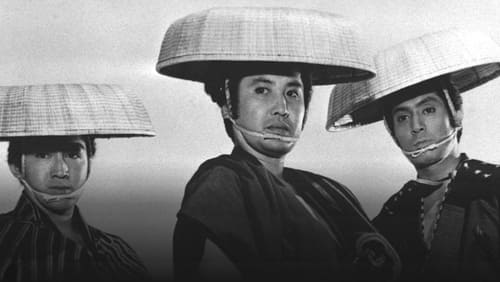
A tale of three Yakuza gamblers who traveled Japan during the samurai era living by their wits and sword skills. Told in 3 separate vignettes, each part tells the story of a different drifter’s life. Part 1: A man is on the run after killing two Hasshu Officials to avenge his Boss. He must make a life or death decision as he is asked to protect a gang from attack. Part 2: A pair of gamblers chased out of a crooked game must fight not only their pursuers, but the ghosts of their pasts as well. Part 3: A wanderer who wants to live according to the Yakuza Code, but is not sure that he can do so when asked to save a town from an evil official.

Pinku from 1965.

In the fourth installment, Musashi's potentially greatest opponent Kojiro jumps in and out of the story at the oddest and most coincidental moments. As his great love Otsu has succumbed to madness. Musashi then sets off to beat the functionaries of a treacherous clan in an arranged duel. 73 against one. Boastful Kojiro watches, secure in the knowledge that only he is a worthy opponent.

Hakuten
A wave of terror is threatening to unseat Shogun Yoshimune. Police stations are erupting into flames, convicts escaping from prison, houses robbed and vandalized, streets teeming with panicked citizens. Is Ijyuin Tanomo, highly-placed official of Owari clan, secretly using deadly ninja to foment riot and rebellion? Narumiya Shinbei, a lone samurai spy adept at ninjutsu must uncover the hidden hand orchestrating these shocking crimes. Shinbei enlists a small band of dedicated ninja to lay siege to the enemy’s stronghold, where his own sister works as an undercover agent. Now, ninja must fight ninja in a last desperate battle to save the shogunate.

Kumomaru
Ieyasu Tokugawa se encuentra con sus hombres de confianza en Sakai mientras Mitsuhide avanza en su intento de conquistar el país. La única vía de escape que tiene es pasar por Iga y contar con la protección de sus ninjas hasta Hamamatsu, atravesando previamente el valle del infierno. Por otro lado el pueblo de Iga sufre el ataque de los 6 guerreros Koga y su jefe, siendo exterminados todos salvo una mujer, dos niños, y Kagemaru. Tras la muerte de su padre será este último quien deba proteger a Ieyasu.
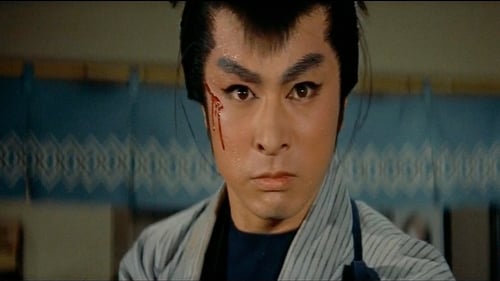
Three young yakuza, Fujitaro, Matsugoro and Kanjuro, travel the country fighting evil.
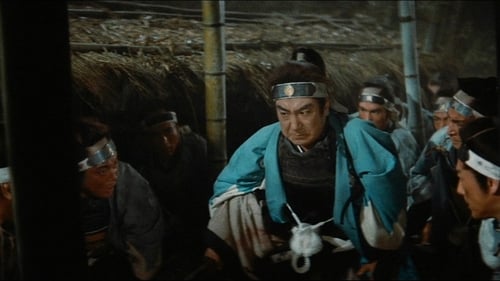
Megastar Kataoka Chiezo is Vice-commander Hijikata Toshizo of the Shinsengumi in this realistic tale of Japan’s inner battles that led to the downfall of the Tokugawa shogunate. Excellent performances and extremely good swordplay highlight this glimpse into the heart and soul of Japanese history. Although known as “Razor Blade” Hijikata, the vice-commander is a man of deep conviction with a little-known sense of humanity. Starting after the famed Ikedaya Incident, in which they saved Kyoto from Choshu’s plot to burn the city to ashes, they work hard to change the public’s view of them as merciless killers to their true mission of protecting the shogun. This is an extraordinary tale of blood and guts! From the pen of award winning author Shotaro Ikenami (Bandit Vs. Samurai, Hunter in the Dark, Misumi's The Last Samurai)
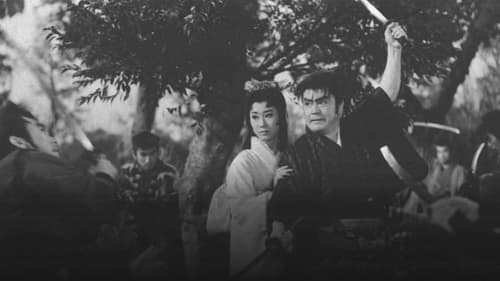
Dos grupos buscan los legendarios Pergaminos Secretos de Yagyu. Una princesa de un clan caído en desgracia y su leal sirviente quieren limpiar el nombre de su familia. Y un clan rival quiere que destruya a la familia Yagyu. Solo el maestro espadachín, Yagyu Jubei, se interpone en su camino. ¿Cuál es el secreto que se esconde en los rollos?

A comedy about a free-spirited man Shosuke, whose life is turned upside down when he is ordered to serve the clan lord.
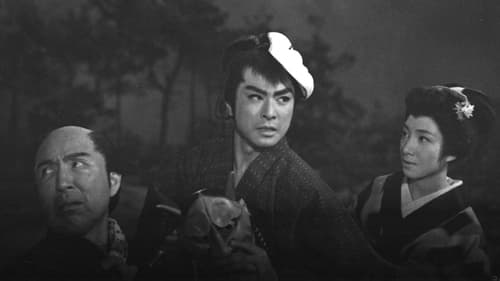
A kindhearted wandering gambler named Hajiro gets involved in a crisis of a village as he passes through and decides to lend a sword in hopes to rescue them.
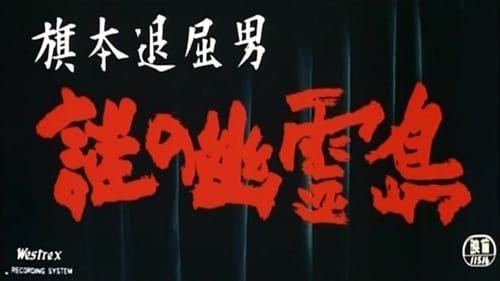
Part of the Bored Hatamoto series. The most popular samurai in Edo, Saotome Mondonosuke, known to most as the "Bored Hatamoto" is the only one who can save the shogunate from the dastardly plot to take over the country.

While on the road, famed Yakuza Boss Jirocho is falsely accused of starting a peasant's uprising and chased by the law. Meanwhile, one of his henchmen in an attempt to raise money for the Boss gambles away not only all their funds, but their clothing as well. Jirocho, famed for his honesty and integrity must take on the challenge of rival gangs while trying to elude the government's officials at the same time. Things really heat up when the most famous of all Yakuza Bosses, Chuji of Kunisada gets involved. Will he team up with his old friend or is gang warfare about to erupt?
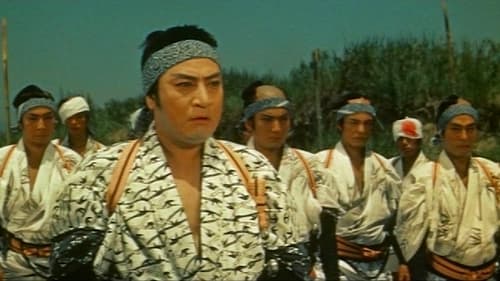
One of the great stories from Japan’s rich history comes to life in this true tale of the bloody showdown between two rival yakuza gangs in the 1840’s. The battle between Boss Sukegoro of Iioka and Boss Shigezo of Sasagawa has been portrayed many times, most notably in the first Zatoichi film, where the blind man befriends the tubercular ronin Hirate Miki, before cutting him down in one of the great duels in cinema history. This all-star extravaganza pulls out all the stops, with appearances by virtually all of the great actors and actresses from Toei’s studio at the time. Ichikawa Utaemon’s portrayal of the kind-hearted, noble yakuza boss Shigezo of Sasagawa contrasts sharply with the devious Sukegoro of Iioka. Corrupt as he may have been, his men were all willing to give up their lives for him.

Five swordsmen are murdered and hung from a tree and the chase is on to find the killers. Two magistrates pursue the leads to solve the crime and it leads to a potential conspiracy to kill the Shogun.

Ippu-Sosho
One of Japan’s most popular folklore characters, Tange Sazen, the one-eyed and one-armed swordsman, must rescue the Yagyu clan from the treachery of a master plotting to take control over a sword fighting school.

Light-hearted samurai comedy. The second son of a feudal lord runs away from an arranged marriage. He saves the life of a princess whom he gets to fall in love with. It turns out that she is just his prospective bride.

This most celebrated all-star movie version of the popular series features Tsukigata Ryunosuke as Mito Komon, the sage who wanders the countryside rectifying government corruption along with his faithful attendants Suke and Kaku.

In the mist of the warring age (Sengoku Era), the Kyushu based Hayato Clan is faced with a monumental battle to determine their survival.

Genji Kurô is a master swordsman and entrusted with protecting the ancient sword Kaen by the Otsubo family.

Adaptation of the novel by Kan Shimozawa.

Yasuke
Chronichles the story of the Forty-seven Ronin.

A group of five law enforcers search Edo for a missing sword.

The final film in the 1953 trilogy based on the long novel series The Great Bodhisattva Pass.

Shunkichi Ishida
It is a historical drama that follows Katsu Kaishu's efforts to surrender Edo Castle bloodlessly in the first year of the Meiji period.

There is an inn named Asano Ya in the port town, and a beautiful woman works there. Every year, during a local festival, travelling artists and teachers gather from all over the country, including sesame oil sellers and organ grinders. The day before the festival, trouble arises with some horses.

This is Kanjûrô Arashi's first film with Nikkatsu after his independent production company went bankrupt (many of these independent companies went bankrupt shortly after the transition to sound). As he is mostly famous for his portrait of Kurama tengu (and on the other hand, he's the definitive actor for Kurama Tengu as well), Nikkatsu made another version of Kurama tengu, co-directed by Masahiro Makino & Sadatsugu Matsuda who are both sons of Shozo Makino. Scripted by Yoshitake Hisa, a jidaigeki specialist who later scripted several Toei All-Star Jidaigeki.
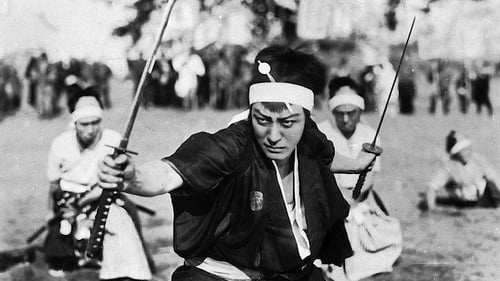
Genjihei Segawa
The tale of Nakayama Yasubei’s duel is famous, even if he in reality probably did not cut down 18 opponents. The story has been related in film, rakugo, kodan and on stage many times, in part because Nakayama later joined the famous 47 Ronin (Chushingura) as Horibe Yasubei. But Makino and Inagaki’s version gives no hint of this more serious future, playing up the thrills and the comedy with Bando’s bravura performance. The multiple pans of Yasubei running to the duel are an exemplar of the experimental flourishes of 1930s Japanese cinema and the final duel, performed virtually like a dance number, is a marker of Makino’s love of rhythm and one of the best sword fights in Japanese film history. The film was originally released under the title Chikemuri Takadanoba (Bloody Takadanobaba) with a length of 57 minutes, but suffered some cuts and a title change when it was re-released in 1952.


Magician
A captivating operetta by Masahiro Makino based on Juppensha Ikku's humorous novel "Tōkaidōchū Hizakurige" starring Chiezo Kataoka and Kyoji Sugi.

The success story of a group of ronin who fights against traffickers during the Edo Tenpo period.

Kinai
Tsukitaro, a young man who comes to Edo, meets a blind girl named Ochiyo. Ochiyo 's father, the grinder Yasujiro, was asked to sharpen a sword called Kongomaru, which was planned to be presented to the shogun Iemitsu, but he died due to a yakuza attack. In addition, the sword was stolen, and Ochiyo 's sister was also kidnapped... A humorous historical drama directed by Eiichi Kudo, starring Hibari Misora and Kotaro Satomi. Hibari Misora plays a male princess and shows off her charming appearance with stylish songs and dances.






















